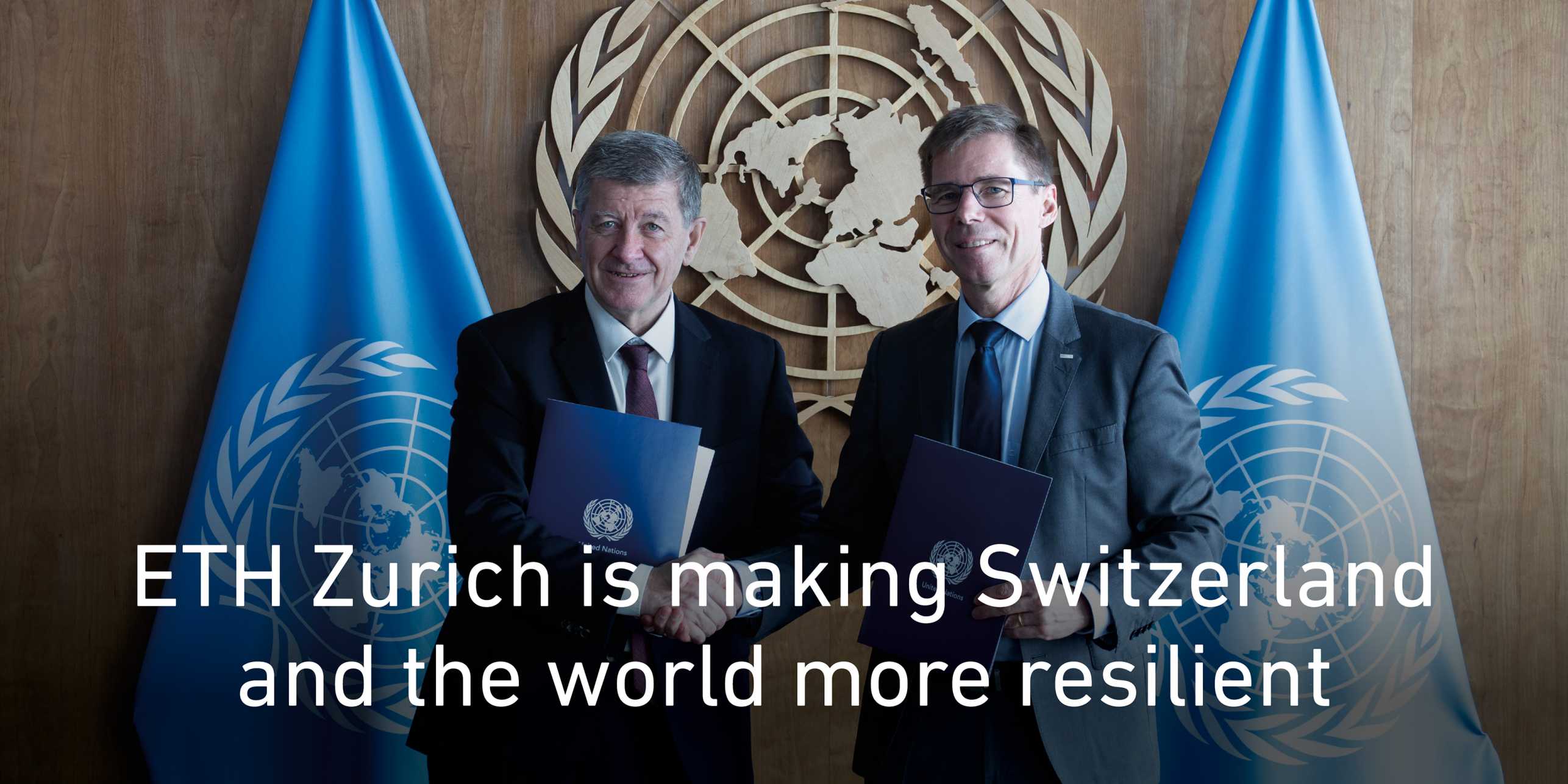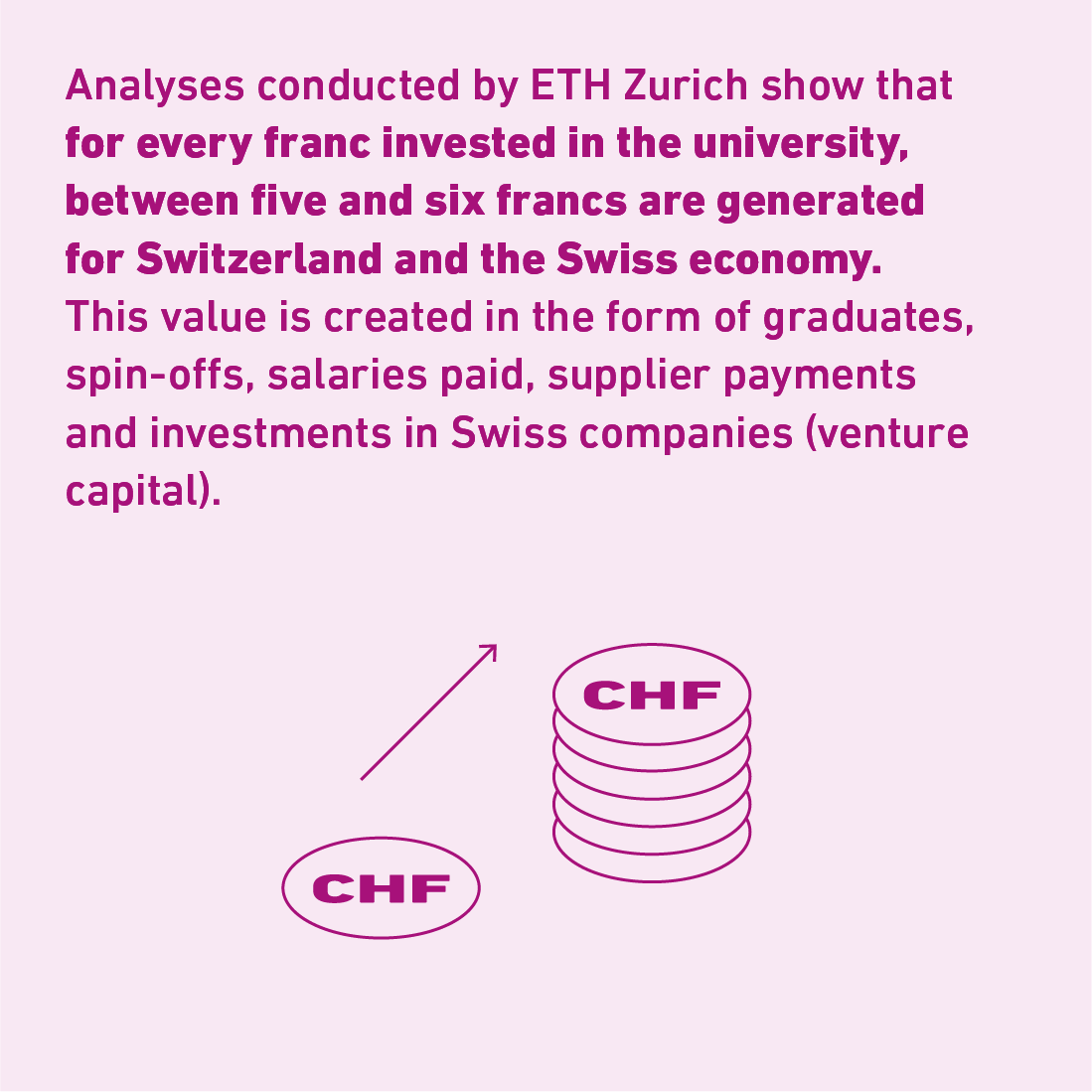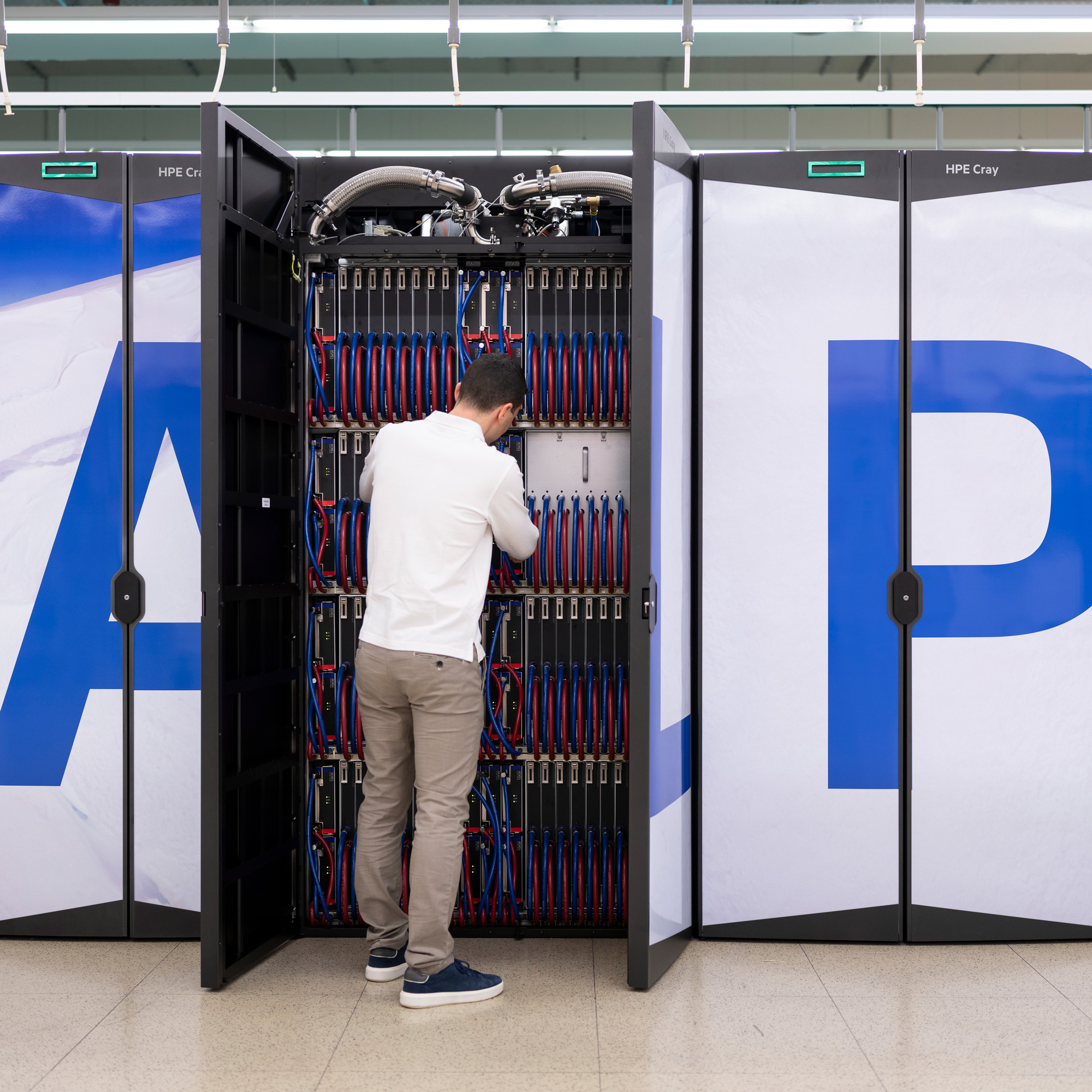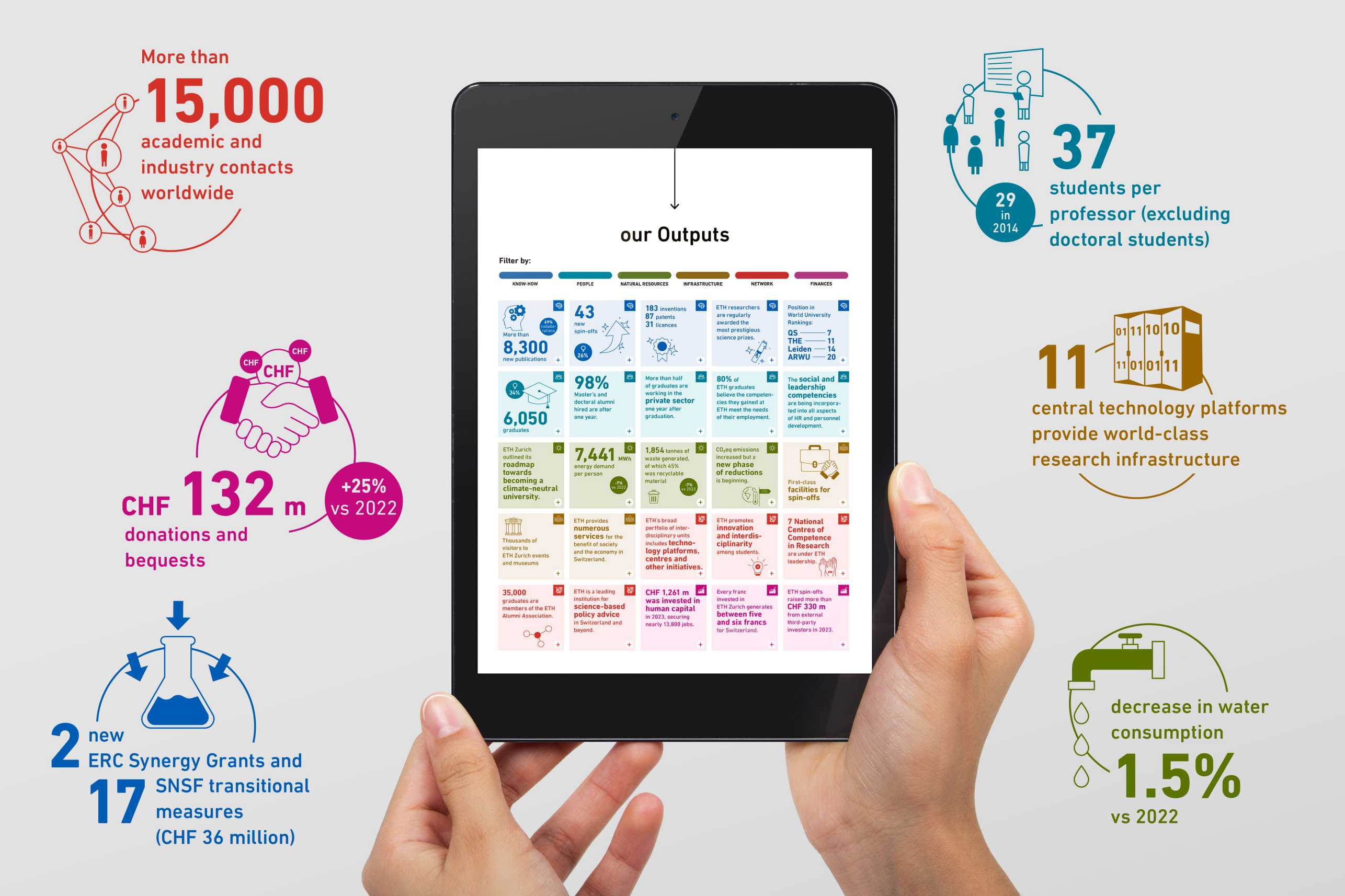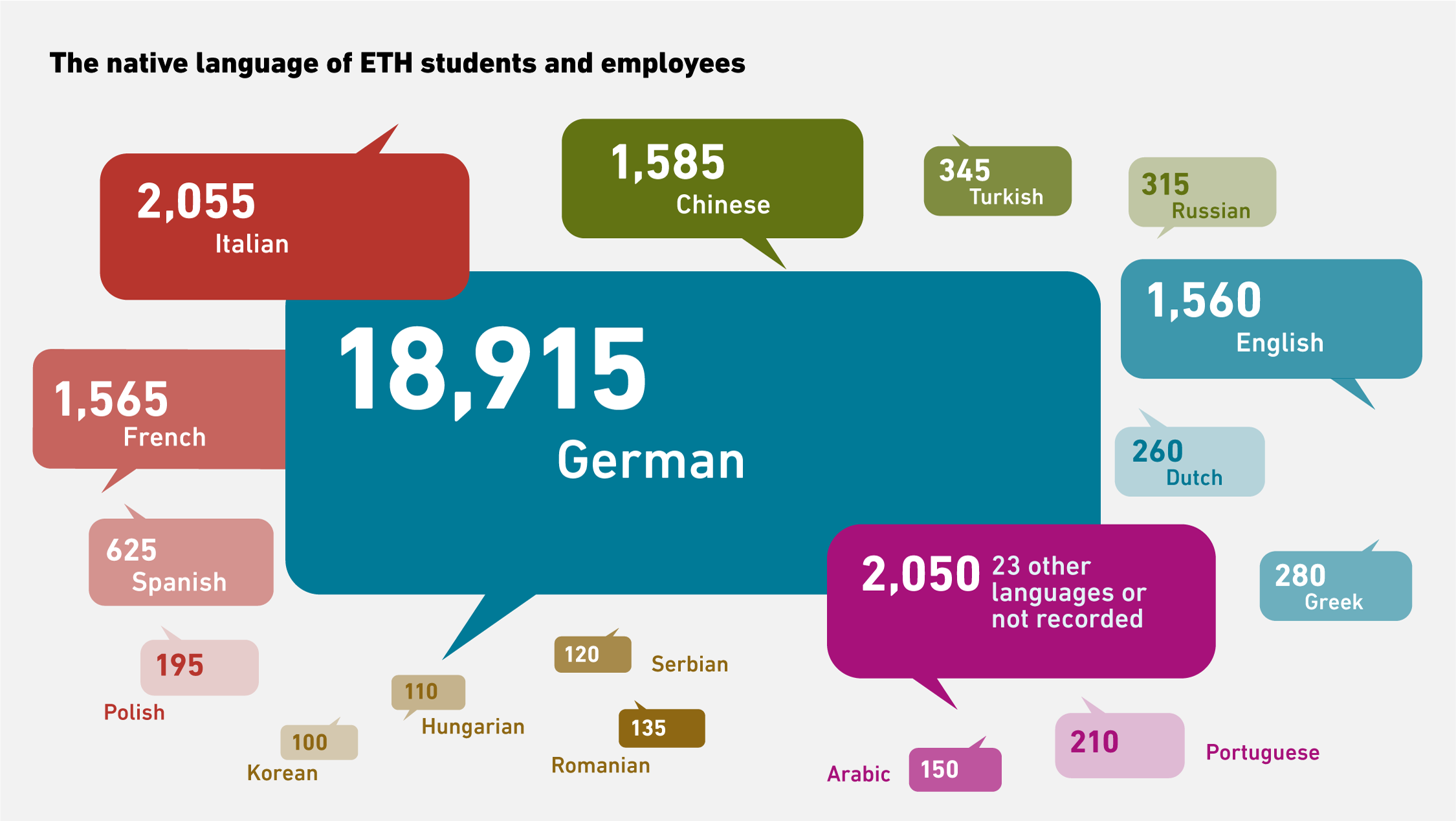Strategy
President’s foreword

Investing in the future
Sustainable energy supply and climate protection, cybersecurity, artificial intelligence, and health and nutrition are national and global challenges. ETH Zurich helps to overcome them with its high-calibre research, education and training and its status as a driver of innovation in Switzerland. As a central training institution for the natural sciences and engineering professions, the university plays an important role in combating the skills shortage. In partnership with industry, it develops technical innovations that are key to maintaining Switzerland’s high degree of competitiveness. ETH safeguards prosperity and strengthens Switzerland’s resilience in a volatile and uncertain world. Reliable funding of the education system is an investment in the future because every franc invested directly or indirectly in ETH Zurich generates five to six francs for Switzerland.
Cooperation in research and education
ETH Zurich is laying down the groundwork to enable it to anticipate future technological developments and social challenges at an early stage and to develop solutions for them. To this end, it is stepping up national and international cooperation in research and education.
ETH and EPFL launch the Swiss AI Initiative
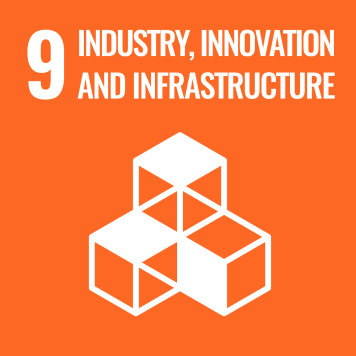
The ETH and EPFL Swiss AI Initiative aims to position Switzerland as a leading hub for transparent and trustworthy artificial intelligence (AI). The new “Alps” supercomputer based at the Swiss National Supercomputing Centre (CSCS) in Lugano provides the supporting infrastructure. Going live in spring 2024, it will be one of the world’s most powerful computers for AI applications and will give Swiss science and industry a significant competitive advantage. Due to the rapid development of AI, supercomputers such as “Alps” are in short supply, and most of the those that are available are owned by a handful of multinationals.

Digital transformation is not only revitalising the economy; it is also key to solving global challenges. To help shape this change responsibly, ETH is planning a new teaching and research centre in Heilbronn, Germany. There and in Zurich, 20 professorships are to be created over the next 30 years. This has been made possible by a generous donation from the Dieter Schwarz Foundation. This partnership with the Dieter Schwarz Foundation allows ETH Zurich to further develop its research and teaching, particularly in the field of artificial intelligence, to an extent that would not be possible with regular ETH funding and structures.
How ETH Zurich creates value
The interactive ETH Zurich Value Creation Model helps to explain what the university stands for and the contribution it makes to society.
Sustainability
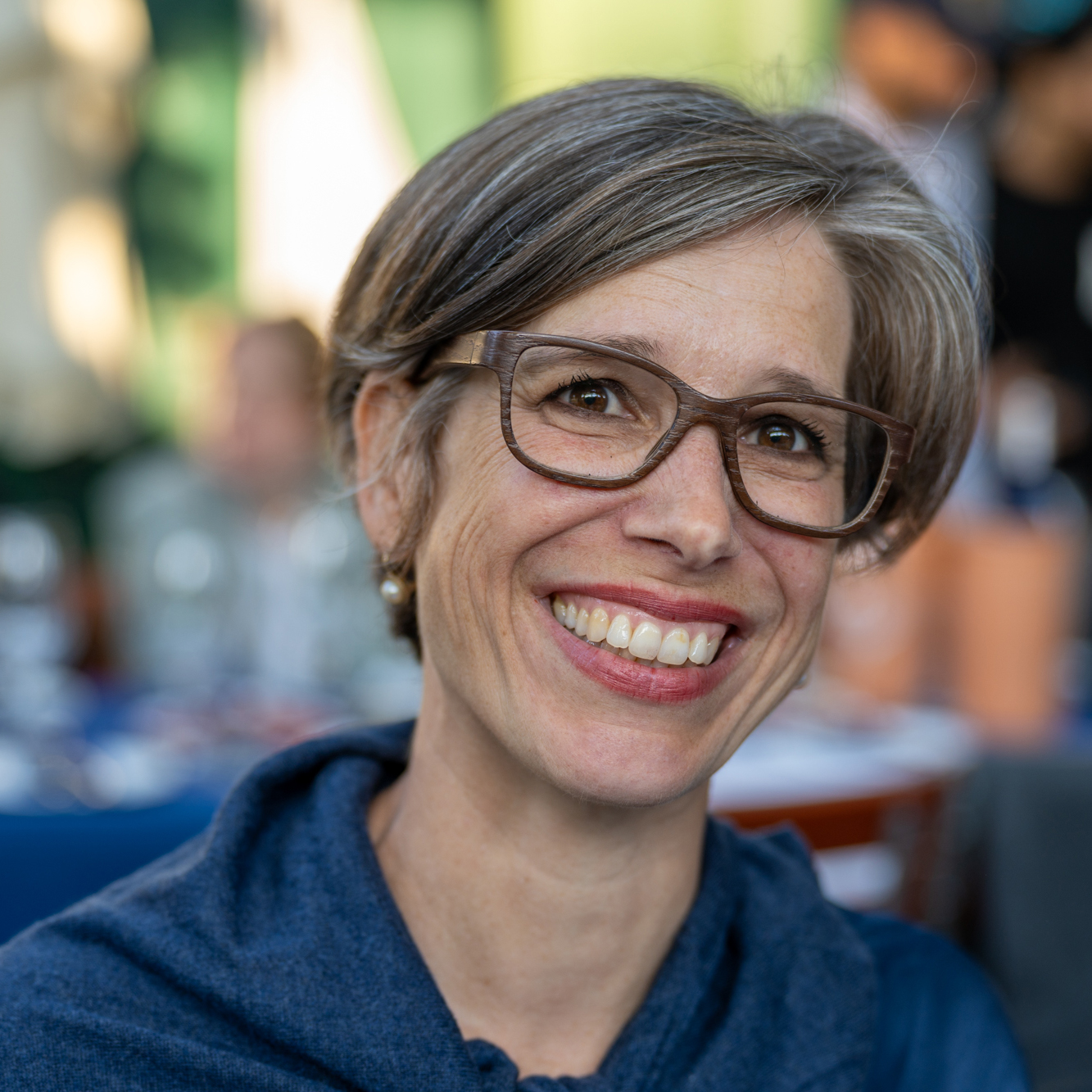
“Being a pioneer of sustainability and decarbonisation means exposing unpalatable truths and demonstrating measurable progress.”Claudia Zingerli, Head ETH Sustainability
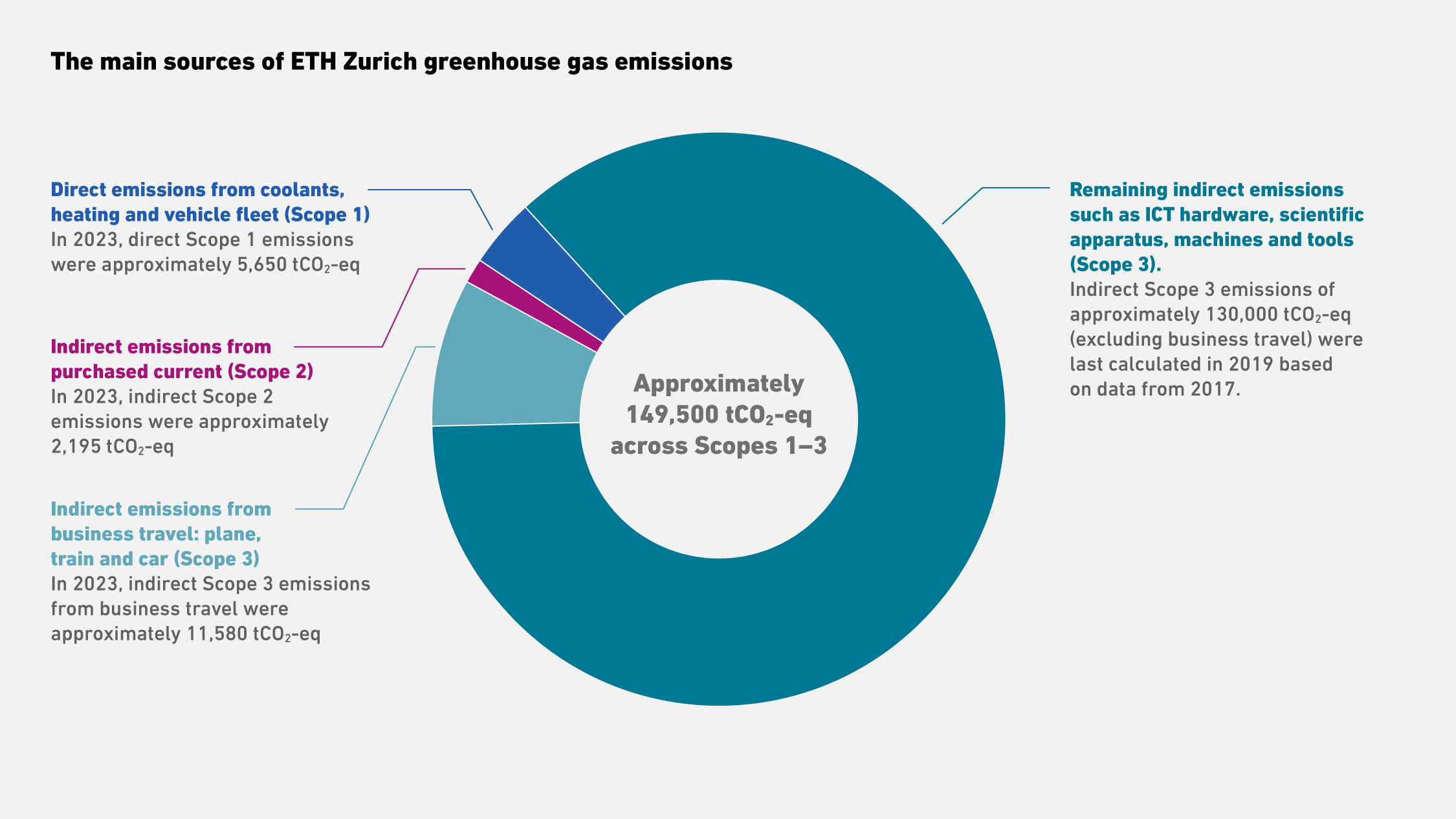
ETH Zurich formulated its contribution to reducing greenhouse gas emissions within the ETH Domain in 2023. The university’s own roadmap to a sustainable and climate-neutral university was further detailed in a consultation process lasting several months with ETH members from all university groups. A multi-year programme involving numerous measures is intended to further reduce emissions. Decarbonisation across all scopes and major progress in dealing with indirect emissions (Scope 3) are key issues for ETH Zurich.

Diversity
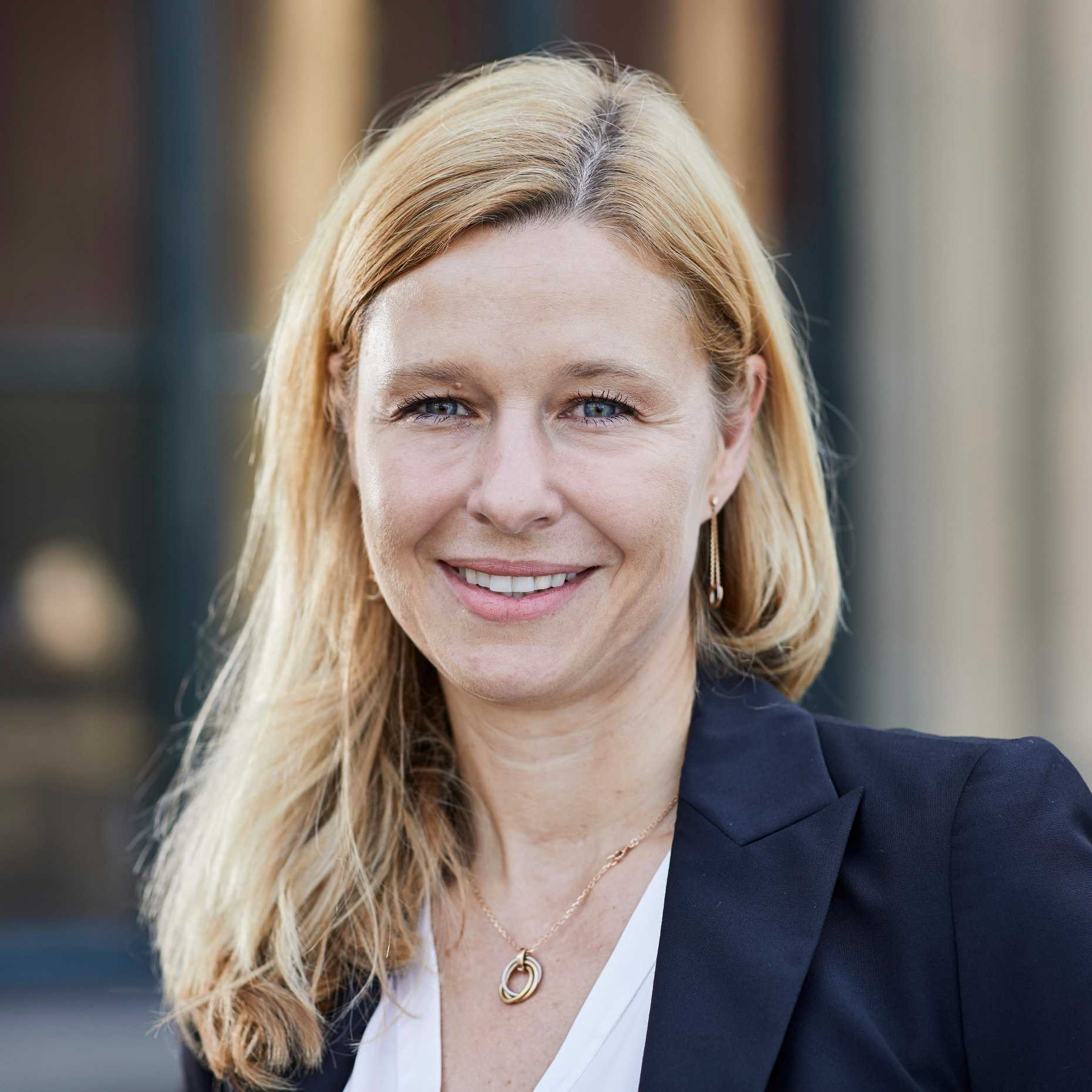
“While we see diversity as an overarching issue, we don’t just talk about inclusion: we live it. I am therefore excited about our diversity strategy.”Julia Dannath, Vice President for Personnel Development and Leadership
Addressing diversity has become a central task of university development. ETH Zurich is working on a diversity strategy that underlines its commitment to diversity and inclusion. The aim is to create and foster an open university culture that embraces all members of the university community. ETH Zurich’s diversity strategy is aligned with the ETH Board’s Diversity Strategy 2025-2028, which is due to be published in 2024.

The Annual Report is produced in German and translated into English. Only the German version is binding.
© ETH Zurich, April 2024
